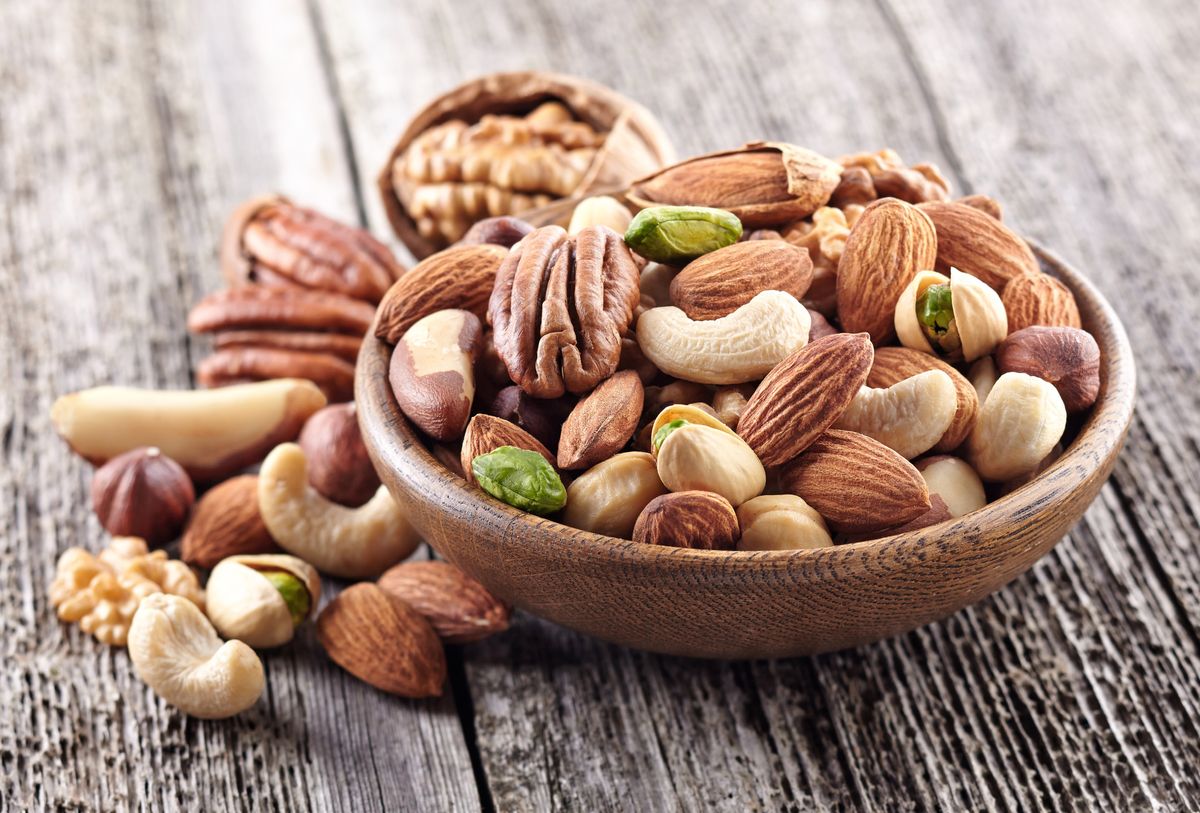The study found that daily consumption of 1.5 ounces of tree nuts such as walnuts, almonds, cashews, and others instead of pretzels led to weight loss, decreased appetite, and a reduction in both blood pressure and heart rate. The tryptophan found in nuts is thought to be the cause, as it metabolizes in the gut and creates bioactive metabolites that support immune regulation related to heart disease.
Researchers sought to determine the impact of consuming tree nuts with a low-calorie diet on the gut and the number of tryptophan metabolites. Lead researcher, Zhaoping Li, MD, PhD, professor of medicine and chief of the Division of Clinical Nutrition at UCLA, reported positive results on tryptophan metabolites, saying "We've known for a long time that tree nuts can help decrease CVD risk, and these findings provide some possible explanations." Li also discovered new connections between tryptophan metabolites and blood pressure, heart rate, and satiety in overweight and obese individuals, indicating a broader impact of tryptophan metabolism on overall health, including cardiovascular health.

Exciting Findings on Nut Consumption and Mental Health A recent study has found that eating tree nuts on a regular basis may have a positive impact on your mental health. The study, published in Nutrients, found that consuming 1.5 ounces of mixed tree nuts, such as almonds, cashews, hazelnuts, and others, daily for 12-24 weeks led to an increase in blood serotonin levels. After 12 weeks of eating nuts, blood serotonin levels increased by 60.9% and by the 24th week, they increased by 82.2%.
This is the first time that researchers have discovered an association between nut consumption and an increase in serotonin levels in the body. Lead researcher, Zhaoping Li, MD, PhD, notes that "this is exciting because serotonin can have an important impact on mood and overall mental health."
Dana Ellis Hunes, PhD, MPH, RD, a senior clinical dietitian and assistant professor, comments on the findings and says, "This study continues to lend credence to the idea that not all fats are bad, and that some are actually healthy and protective. And also, that plant protein sources are healthy and protective as well."
These findings offer more evidence that nuts can be a beneficial addition to your diet, not only for their crunchy texture and satisfying taste, but also for their positive impact on heart disease risk and mental health.

Consuming different types of nuts has been linked to several health benefits, including reducing platelet aggregation and increasing serotonin levels, according to registered dietitian Dan Gallagher of Aegle Nutrition. Regular consumption of nuts is said to reduce the risk of blood clots, which is a major cause of heart attacks and strokes. Hazelnuts and walnuts are considered to be some of the most beneficial types of nuts, offering a good source of healthy fats and fiber. However, people with nut allergies must be cautious and avoid consuming nuts, as exposure to them can be dangerous. Instead, they can opt for healthy alternatives such as sunflower seeds and avocados.

